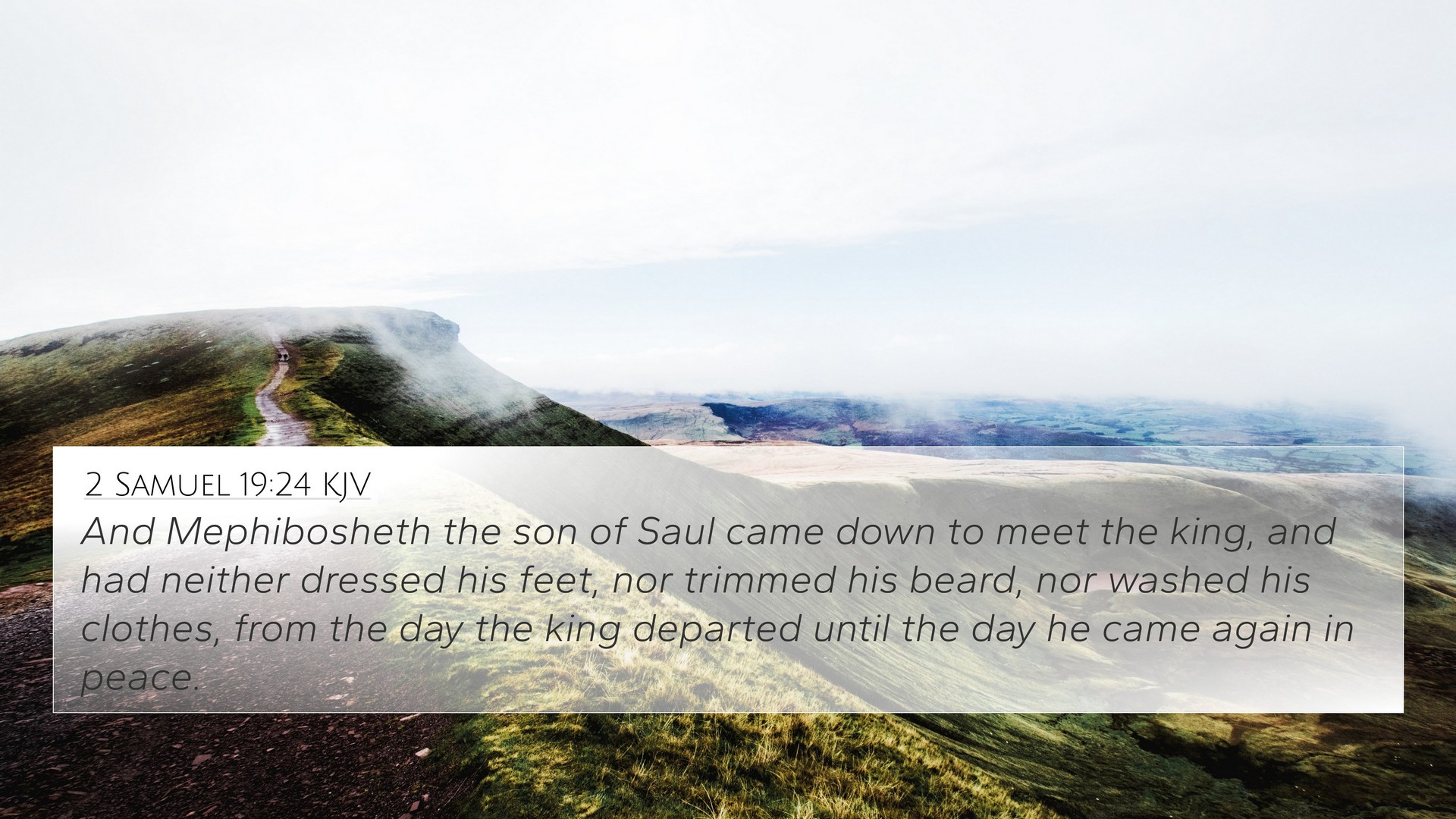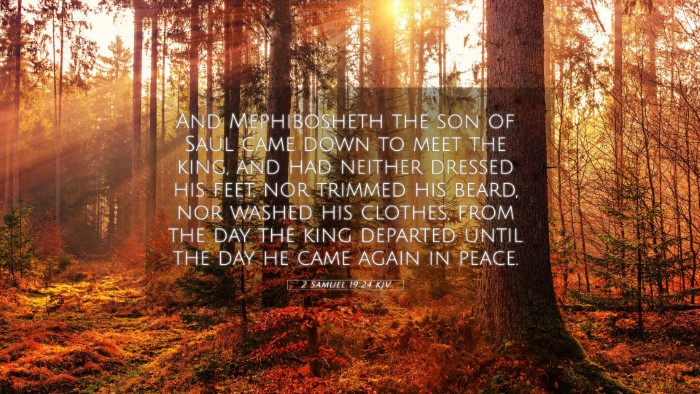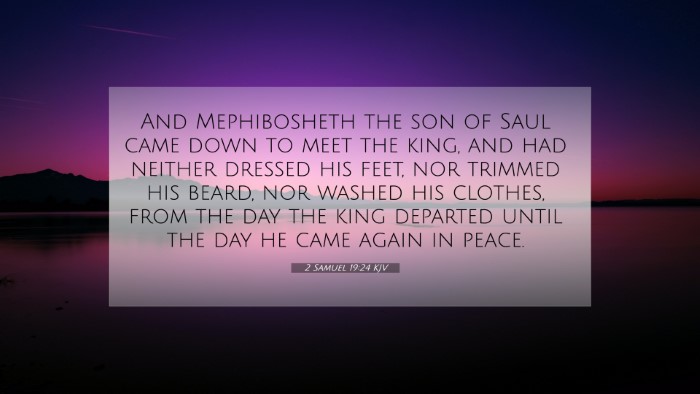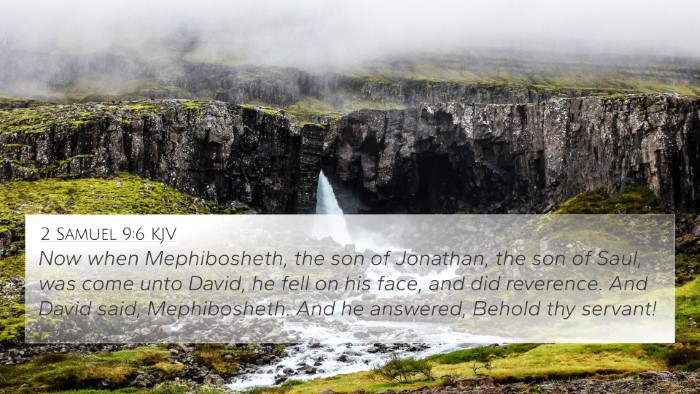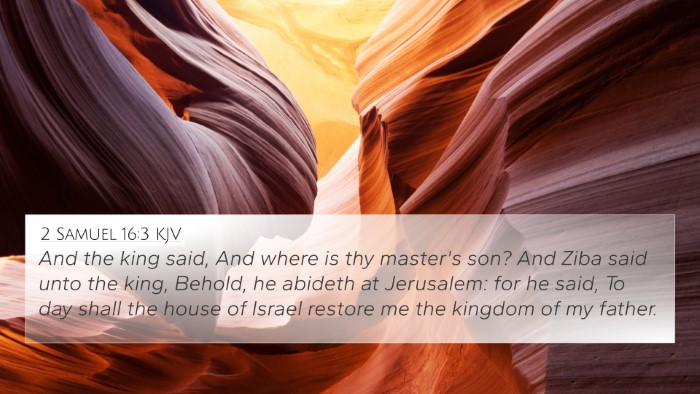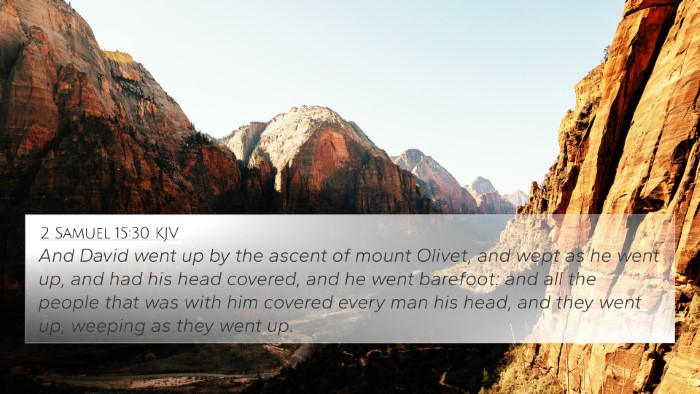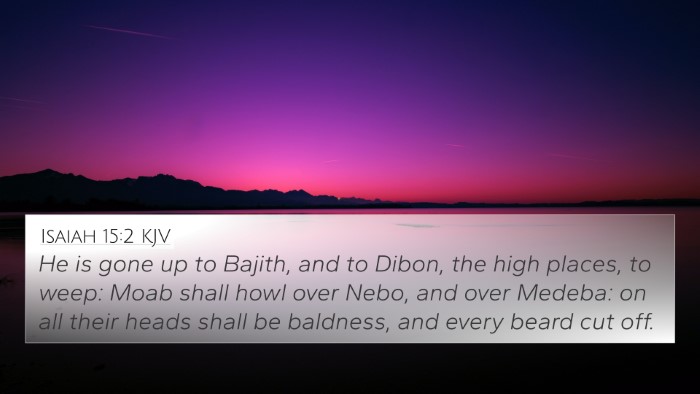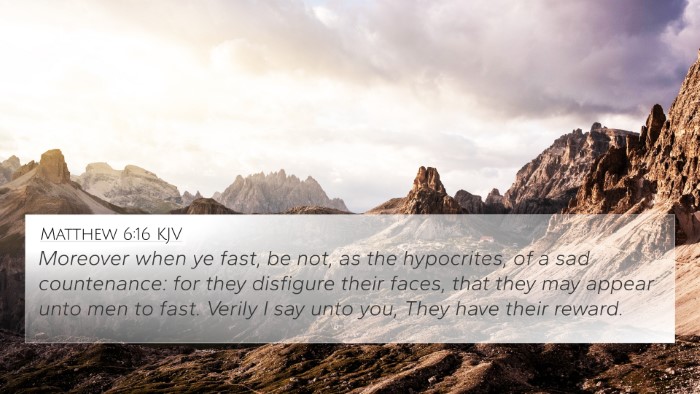Understanding 2 Samuel 19:24
Verse: 2 Samuel 19:24 - "And Mephibosheth the son of Saul came down to meet the king, and had neither dressed his feet, nor trimmed his beard, nor washed his clothes, from the day the king departed until the day he came again in peace."
General Overview
This verse provides an insight into the emotional state and condition of Mephibosheth, who represents loyalty and grief during a time of political upheaval and personal loss. The absence of personal grooming signifies a mourning period and a deep sense of distress due to the absence of King David. This context allows for a richer understanding of themes surrounding devotion, grief, and redemption within the narrative.
Commentary Insights
- Matthew Henry: Matthew Henry emphasizes the significance of Mephibosheth’s appearance as a symbol of his loyalty and mourning due to the uncertainty of King David’s return. His actions highlight the deep emotional bond and the hope for restoration, suggesting that outward expressions often reflect internal states.
- Albert Barnes: Albert Barnes notes that Mephibosheth's unkempt state illustrates his distress during King David's absence. He draws attention to the idea that true loyalty transcends appearance and points to the deeper relationships built on faithfulness amidst adversity. Barnes views the lack of grooming as a visible sign of grief, highlighting the human condition when faced with loss and the longing for reunion.
- Adam Clarke: Adam Clarke interprets this verse as a clear demonstration of Mephibosheth's loyalty. He mentions that the neglect of personal grooming reflects the agony of separation from David. Clarke also discusses Mephibosheth’s situation as an exemplar of those afflicted by circumstances beyond their control but maintains hope for restoration and reconciliation.
Thematic Connections
This verse is rich with themes that resonate throughout the entirety of Scripture:
- Loyalty and Devotion: Mephibosheth’s actions underscore the themes of faithfulness to God and godly leaders. His mourning reflects a profound loyalty that embodies many Biblical figures, like Esther (Esther 4:1-3) and Job (Job 1:20-21).
- Mourning and Grief: The period of mourning depicted invites comparisons to other characters in Scripture who have faced loss. Examples include David’s mourning for Saul and Jonathan (2 Samuel 1:11-12) and Jesus weeping for Lazarus (John 11:35).
- Restoration: The narrative sets the stage for Mephibosheth’s eventual restoration to favor, paralleling Biblical themes of redemption, such as in the story of the Prodigal Son (Luke 15:20).
Bible Cross-References
To enrich your understanding of 2 Samuel 19:24, here are notable cross-references that illustrate related themes:
- 2 Samuel 9:1-13: Mephibosheth's initial encounter with David, showcasing themes of grace and restoration.
- 2 Samuel 16:3: Ziba’s explanation regarding Mephibosheth, again emphasizing loyalty and differing perspectives within relationships.
- 1 Samuel 20:14-15: Jonathan's plea for allegiance, enhancing the depth of loyalty seen in Mephibosheth.
- Psalm 34:18: Assurance that the Lord is near to the broken-hearted, paralleling Mephibosheth’s mourning.
- Isaiah 61:3: Themes of comfort and restoration resonate within the context of mourning and joy.
- Luke 7:13: Jesus’ compassion upon the widow in Nain echoes themes of grief, demonstrating empathy in heartache.
- 2 Corinthians 1:3-4: God as the Comforter of all affliction, reinforcing the idea of divine support in times of distress.
- Romans 8:28: Assurance that all things can work for good, linking to Mephibosheth’s eventual reconciliation with David.
- Zechariah 1:17: God’s promise to restore Zion reflects the theme of hope and restoration that permeates through gloomy times.
- Revelation 21:4: The promise of wiping away every tear relates to the comfort that will ultimately come for the grieving.
Conclusion
In summary, 2 Samuel 19:24 encapsulates a moment of grief that signifies profound loyalty and longing for connection. Through a combination of commentary insights and inter-Biblical cross-references, we see a rich tapestry of related themes and a call for deeper reflection on the human experience of devotion, loss, and the hope for restoration. This verse serves as both a personal and communal reminder of the journey from grief to grace.
SEO Keywords Utilized
This content harnesses various keywords tied to Bible verse cross-references, connections between Bible verses, and thematic Bible verse connections, ensuring comprehensive coverage for those seeking insights into 2 Samuel 19:24 and its broader implications within Scripture.
